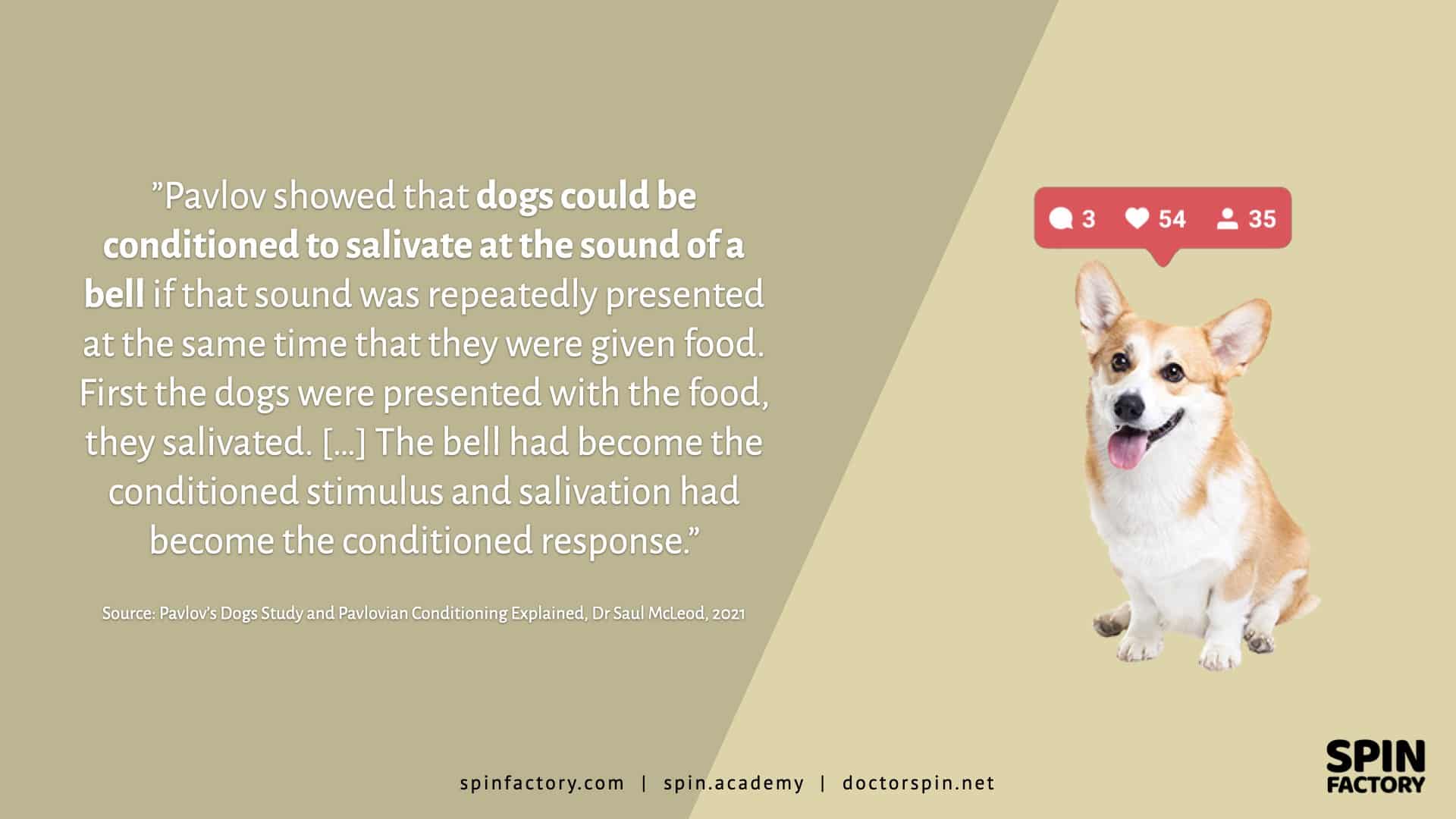I’ve got some evil leadership techniques to share.
Sometimes, I’m the boss.
I usually do well as a leader. I’m comfortable being in charge and having others depend on my decisions. I’m calm, confident, and communicative.
Still, I won’t hesitate to use psychological tricks to get the job done.
Allow me to share some of these evil leadership techniques.
Here we go:
1. The Push-Up Effect
For 15 long (and cold) months, I served as a platoon commander in the Swedish armed forces. As a sergeant, I learned a valuable lesson from leading mandatory physical exercise sessions every morning:
If you order a group of well-trained men to do 30 push-ups, they’ll do 30.
However, if you order them to do push-ups on your count without giving them a push-up goal to aim for, even the toughest recruits will start to moan at 15 push-ups.
The lesson? Information is power. Yield it.
If you want to get the most from your team, give them the bigger picture. If you want to break people down before building them up again, deprive them of basic information.
2. Have Your Instructions Repeated
When asking someone to do something, ask them to repeat your instructions. You will quickly learn that your instructions weren’t as straightforward as they sounded in your head.
Communication is difficult. Our brains are complex. When two brains communicate, massive amounts of noise distort the signals. We’re all drowning in preconceptions and biases.
It’s wondrous that we manage to get anything across at all.
Why is it evil to have someone repeat your instructions until they are 100% correct? Because if your subjects fuck up your instructions anyway, they won’t convince themselves that it was somehow your fault.
People who know they fucked up once will go the extra mile next time.
When delegating, have the team leader repeat your instructions back to you. Now, it’s not just your words echoing in their heads — it’s their own, too.
3. Pace Your Leadership
Here’s a challenging dichotomy of leadership:
Your team won’t respect you if you never get your hands dirty.
But if you get your hands dirty all the time, your team will kick back and applaud you (while watching you do the work). And then they won’t respect you, either.
This is also something I learned while serving in the military:
When the sun was shining, our terrain vehicles were functional, and everyone had something to eat, then I was the officer who never lifted a finger.
But as the cold came upon us, in the dead of night, our vehicles broke down, and the fire wouldn’t light, and everyone was hungry and at the brink of exhaustion — I was rested and strong.
In extreme conditions, when they needed my leadership the most, I rose to the occasion like a Phoenix out of the ashes of their despair. Since I hadn’t been sweating through my clothes all day, I could switch gears, make decisions, and fix stuff with a clear head.
And with each display of Herculean strength, my leadership legend grew.
Don’t waste your leadership energy. Save your strength for situations when your team is the most susceptible for a full-on leadership display where you demonstrate your crushing competence.
4. Have Your Instructions Written Down
I’m a digital guy. But digital devices run out of battery. And they make annoying sounds during your agency briefing.
So, I like note-taking to be done the old-fashioned way; I always ask my agency team to carry a notebook with them. I suggest Moleskine or Field Notes—because I’m a notebook snob.
I don’t care if anyone has a perfect memory or not. If I give instructions, those instructions must be written down. I want to see pen to paper.
The psychology is simple: No one except for the troublemakers will complain about being prompted to take notes. They will demonstrate their defiance by saying, “It’s okay; I don’t need to write it down.”
Well, now I know who they are.
Be strict with note-taking. And the younger the team, the more critical it is to abide by this rule. Write. It. Down.
5. Never Give Subjects Solutions
If you, as a leader, are too helpful, the team can respond by shutting down their brains. I’ve seen it happen many times.
If a subject comes to you with a problem, asking for a solution, you shouldn’t just hand it over. Even if you easily could.
Here’s what to do instead: tell your subject to come back with two possible solutions to their problem. Then, when they return, you ask them which of the two solutions they prefer.
Nine times out of ten, your subjects will arrive at the correct answer alone.
Here’s the psychology:
The process of first asking for help, only to be told to come up with not one but two possible solutions, and then be asked to make a choice, is mentally draining. They will start looking for shortcuts.
Since you trust their judgement, the subjects will find it easier to come to you with their best solutions directly — instead of their first question.
Please don’t give it away when someone asks for a solution. Your job is to make people think for themselves, not have them become dependent on you thinking for them.
6. Use Pavlovian Psychology
Dogs respond poorly to negative feedback. It puts them in a state of fear, submission — or both. The prospect of being shunned by their pack scares the living daylights. Fearful dogs can be dangerous and irrational.
Conversely, dogs are dependent on positive reinforcements from their pack. A brief absence of such positive feedback makes them alert and attentive.

Human beings, I find, aren’t that different.
The basic rule of behavioural psychology is that you get more of what you reinforce.
Many of us, too, respond poorly to negative feedback. It’s challenging to get through to a person who is in a fearful state.
I’ve found that using positive reinforcement and the absence of positive reinforcement works wonders.
When you’re happy with your subjects’ performance, praise them. When you’re not satisfied, give them nothing.
7. Leave the Party when You’re Ahead
Don’t get drunk with your team. Have fun, drink moderately and then, before it gets too late, call it a night and get out of dodge.
Go home and spend some quality time with your family or something.
It doesn’t matter if you’re “the coolest boss” ever. (Hint: You’re not.) Not even twelve shots of vodka will change the fact that you have “hiring and firing” power. You negotiate people’s salaries, allowing them to put food on their tables.
Yes, you might miss a crazy, fun night out. Yes, they might think that you’re a bore. But the correct answer is always: Go home.
It’s not that you might make a fool of yourself (although that may be a risk.) The day after, and many days after, your team will admire your discipline and be thankful they got to party without their boss present.
I occasionally let the team get drunk together, play spin the bottle, and dance on tables all night. But it would be best if you left early.
8. Allow Yourself Tactical Time-Outs
Here’s yet another military leadership hack: Imagine navigating your team through the woods.
After a while, you realise that you’re lost. Oops.
Now, you could inform the group that you’ve lost your bearings completely (and that they probably will miss their next meal).
In theory, your team could potentially help you get your bearings back. However, their tired minds will most likely go into “reptile mode”:
Instead of just having one problem (i.e. being unable to pinpoint your location), you now have dozens of fearful reptile brains to deal with.
Instead, take a break, occupy the team with a task — and take the cleverest person aside. With that person, you scope the lay of the land (i.e. your existing situation), and you calibrate your tools (i.e. your map and compass).
Then, return to the team with newfound confidence and present a new direction. Practice this behaviour, and your team will feel safe, not anxious, whenever you decide to step away for a little while.
Take a time-out when a decision is needed, and you don’t know where you stand. In the long run, your team will feel safe whenever you step away for a little while.
Read also: Zombie Apocalypse Survival Skills for PR Professionals
9. Be Wrong Quickly
I could never have guessed that leadership was so much about guesswork. Yes, your gut instinct will significantly affect most of your day-to-day operations, so you should get used to it. You’ll still make decisions based on too little information even if you acquire all the information.
“A quick decision is better than a perfect decision made too late.”
Not knowing if you are about to make the right or the wrong decision is scary. But if there’s no way for you to make a more informed decision, then make the bloody decision and be done with it.
Make timely decisions and deal swiftly with the consequences. You’ll never have the luxury of enough information anyway. Get it over with and keep pushing forward.
10. Set Troublemakers Straight
In any group, it’s often easy to spot the potential troublemakers, subjects who will try to make you look bad in front of your team. Instead of waiting for them to make their move, take them aside individually and make a deal with them:
“As your team leader, I will be making lots of mistakes. It’s part of being a leader, as I’m sure you’ll get to experience yourself one day. I’ve noticed that you’re clever, and you’ll probably pick up on my mistakes before the rest of the group. I would ask you to make me aware of these mistakes face-to-face and never before the whole group.
Such a conversation will make undermining your authority more difficult for the troublemaker. Troublemakers often thrive on being right, but breaking your deal would put them wrong.
Strike deals with potential troublemakers proactively. They might not respect you yet, but you can often rely on their will to act consistently.
11. Be Tough at First
They’ll like you if you are too friendly with your subjects from the start. But as soon as you tell them to do something uncomfortable, they’ll start to act up. And if you then get tough on them, they’ll rebel against your authority. Instead, flip this narrative with this hack: Start with being extremely tough on your subjects. Give them uncomfortable assignments right from the start — and accept no excuses:
Quench all complaints and whining. Never let anything less than ‘perfect’ get past your approval. Then, after this initial “hell phase,” you can start losing your grip gradually. And, suddenly, by being a monster at the beginning of your relationship, the love for you as a leader will grow stronger and stronger.
Be tough first, nice second. Let your subjects earn your good graces.

THANKS FOR READING.
Need PR help? Hire me here.

PR Resource: Communicative Leadership
Spin Academy | Online PR Courses

Spin’s PR School: Free Leadership PR Course
Take advantage of this Free Leadership PR Course to sharpen your public relations skills and become a confident and influential leader in any industry.
Leadership Theory
Communicative Leadership
Bonus Articles
Learn more: All Free PR Courses
💡 Subscribe and get a free ebook on how to get better PR.



